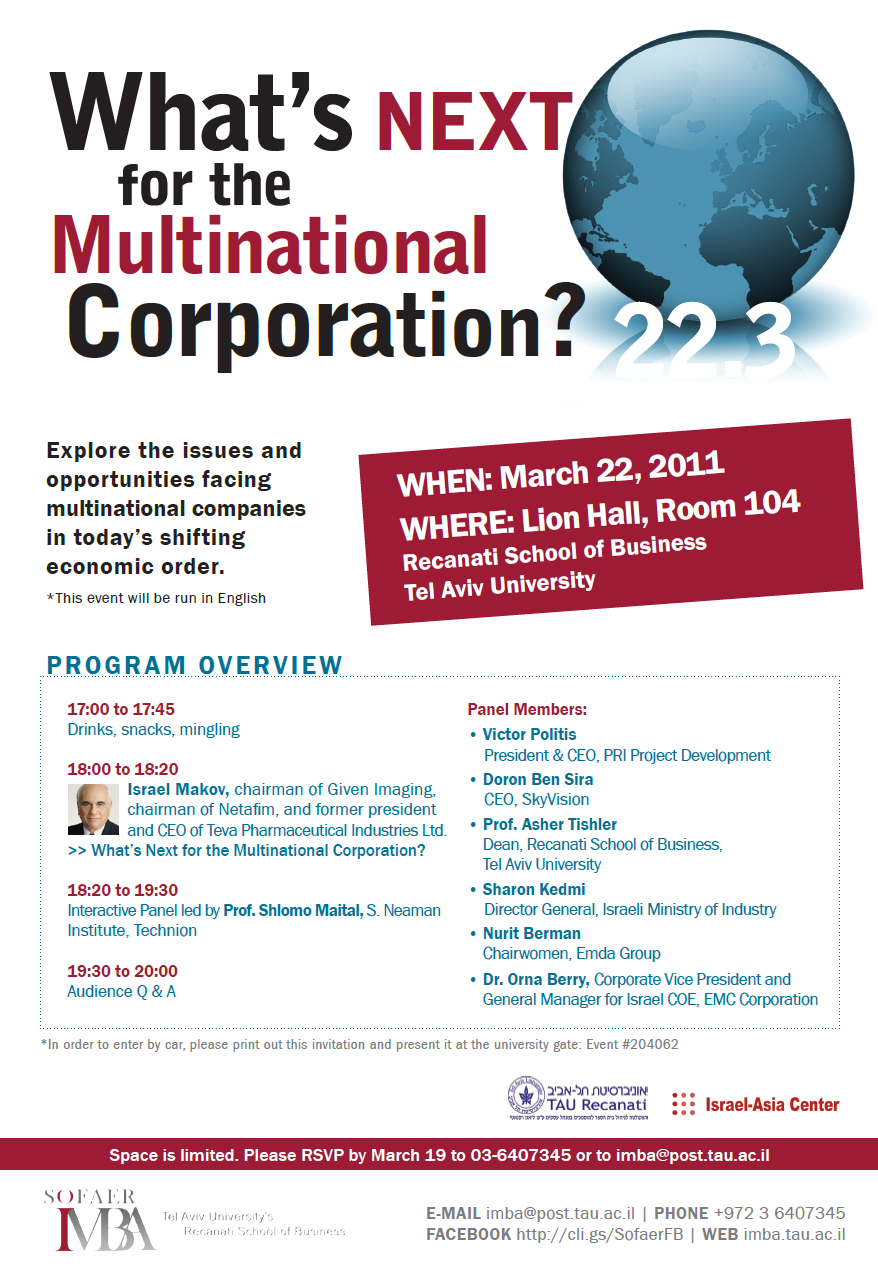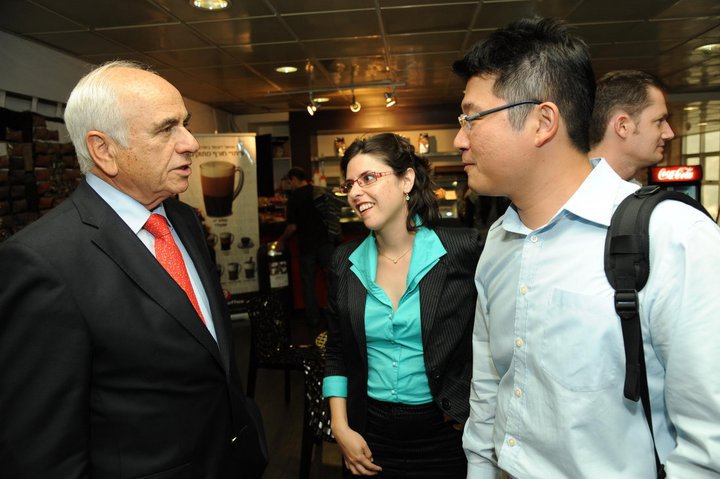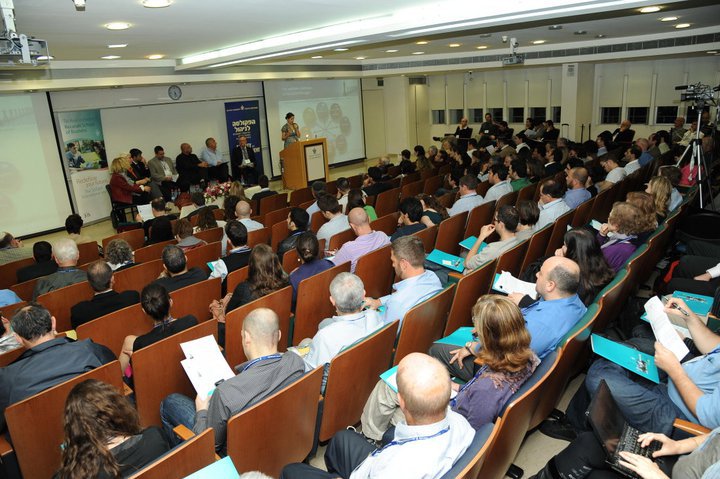EVENTSPAST EVENTS
What’s Next for the Multinational Corporation?
Date March 22, 2011
Location
Recanati School of Business
Tel Aviv University
Tel Aviv

Via discussion with top academics, professionals, and public servants What’s Next for the Multinational Corporation explored the new reality facing established multinationals, the future of emerging markets’ game changing multinationals, and visions of the world’s new economic order.
Former British Prime Minister Gordon Brown recently stated, “With 70 per cent of world economic growth coming not from the older industrialised nations but now coming from the emerging and developing countries, there must be a new deal that includes every country and every continent.” Although this may sound like a continuation of Western humanitarianism, Gordon Brown is not speaking from a position of compassion, but rather necessity. The world economic order is shifting and the West no longer holds the reins of development, investment or innovation.
While once solely considered the provider of cheap labor and raw materials, emerging markets are today credited as true consumer markets, R&D hubs, and innovation centers. According to a recent article in the Economist, emerging markets are now “hotbeds for business innovation” outright. “They are reinventing systems of production and distribution, and they are experimenting with entirely new business models.”
The result of this emerging reality is twofold. Many Western-based multinationals, such as: Siemens, Microsoft, Dell, Wall-Mart, General Electric, Accenture and Cisco, are racing to embed various wings of their production in emerging market geographies. Simultaneously, Western-based economies are finding themselves increasingly out-competed by native born companies, many which today have also gone international. Companies like Infosys (India), Cemex (Mexico), and Huawei (China) “are becoming powerhouses of innovation in everything from telecoms to computers.”

Key Points of Discussion
- New trends in multinational talent recruitment and management: Who are companies looking for and where are they looking?
- Global trends in higher education: What will success look like? Next global leaders? Is a new model needed?
- Innovation: Where is it coming from? Where will it be coming from?
- The new consumer: emerging market trends
- The global workforce: What does it look like? What are its needs?
- The new worker – what does a worker of the future need in regards to training, prospective, rights, freedoms? How can the employee best prepare? How can the manager?
- Supply chain management – what is does it really look like? What will it look like?
- What role does measurement of exports play as an indicator of our industries competitiveness?
The event was coordinated by the Recanati School of Business and co-sponsored by the Israel-Asia Center.

